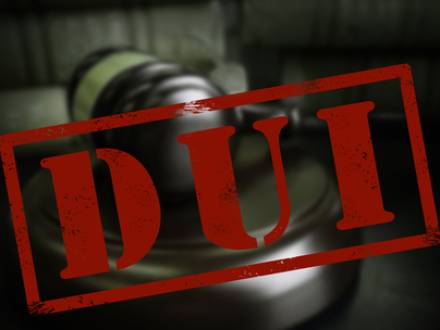Can an IID Violation Lead to a New DUI in Connecticut?
 Ignition Interlock Devices (IIDs) are meant to prevent drivers from operating a vehicle while impaired, following a Connecticut DUI conviction. Many drivers with a court-ordered IID (C.G.S. § 14-227a) fail to realize that an IID violation can sometimes trigger a new DUI investigation. Under Connecticut law, a failed IID breath test, a missed rolling retest, a tampering alert, or allowing someone else to blow into the device can result in criminal charges, DMV sanctions, and extended IID requirements.
Ignition Interlock Devices (IIDs) are meant to prevent drivers from operating a vehicle while impaired, following a Connecticut DUI conviction. Many drivers with a court-ordered IID (C.G.S. § 14-227a) fail to realize that an IID violation can sometimes trigger a new DUI investigation. Under Connecticut law, a failed IID breath test, a missed rolling retest, a tampering alert, or allowing someone else to blow into the device can result in criminal charges, DMV sanctions, and extended IID requirements.
Understanding how IID violations lead to new DUI allegations is critical for anyone currently using an IID in Connecticut. To fully understand how Connecticut law gives officers, prosecutors, and the DMV broad authority to treat IID failures as evidence of new impaired driving, it can be beneficial to speak to an experienced Fairfield County, CT DUI lawyer.
What Counts As an IID Violation in Connecticut?
IID devices record every attempt to start the vehicle and every rolling retest. Violations include the following:
- Any attempt to disconnect or tamper with the IID
- A missed rolling retest
- A BAC reading above the set threshold
- Attempting to start the vehicle during a lockout
- Having another person blow into the device
- Using alcohol-containing products like mouthwash, sprays, and medications
Because the system automatically reports violations, an innocent mistake can appear suspicious.
How Can an IID Violation Become a New DUI Charge?
If the IID records a BAC above its threshold, then the implication is that the driver attempted to drive with alcohol in his or her system. The prosecutor may argue that blowing a positive test at startup shows an intent to drive, and if the startup test was passed, but a rolling retest was failed, then the driver was driving while impaired.
If a rolling retest is missed, the police may assume that the driver was too impaired to notice, intentionally ignored the prompt, or was not in physical control of the vehicle. If the IID data shows the device was unplugged, manipulated, or used by another person, Connecticut authorities could assume the driver was attempting to avoid detection or was driving while impaired without providing a sample. Tampering with an IID can lead to DUI charges and separate criminal charges.
Why Connecticut Treats IID Violations So Seriously
Connecticut’s DUI laws operate under a strict public-safety model. Once drivers have a DUI on record, the state increases scrutiny. IID data is treated as a real-time measure of alcohol use, a record of possible intoxicated driving, and a driver safety compliance test. Any violations that raise a red flag can trigger a criminal investigation. If the IID violation is treated as a new DUI, the consequences can include longer IID requirements, increased fines, probation violations, vehicle impoundment, an adverse impact on a professional license, and new criminal DUI charges.
What Are the Most Common Defenses to IID-Based DUI Charges?
A DUI defense attorney can raise strong challenges to IID-based DUI charges, including:
- IID error or malfunction
- A positive startup test does not equal operation, and there was no actual driving or intent to drive.
- Mouthwash, dental work, or acid reflux skewed the readings.
- Another person blew into the device or handled the car without the driver’s knowledge.
- The driver has a physiological condition like diabetes or ketoacidosis that can mimic alcohol.
- The IID device was not properly maintained, making the readings unreliable.
Contact a Stamford, CT DUI Lawyer
If you have received an IID violation in Connecticut or are facing new DUI charges based on IID data, you need immediate legal assistance from a knowledgeable Fairfield County, CT criminal defense attorney from Law Offices of Daniel P. Weiner. Attorney Weiner will review your IID violation or DUI case and build a strong case on your behalf. Call 203-348-5846 to schedule your free consultation.







